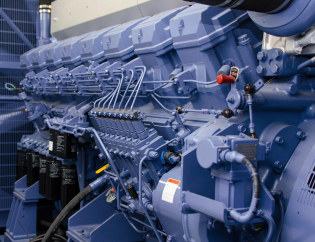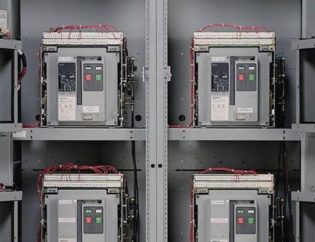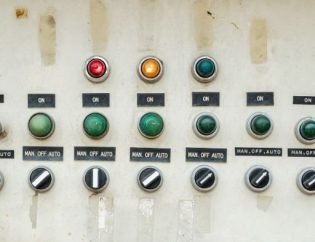Understanding Generator Control Panels:
A generator control panel is the command center that regulates the generator’s functions. It consists of various components, including switches, buttons, meters, relays, sensors, and a control unit. The control panel allows operators to monitor critical parameters, adjust settings, start and stop the generator, and manage alarms and notifications. Proper maintenance of the control panel is crucial for the overall performance and reliability of the generator system.
The Importance of Regular Maintenance:
Regular maintenance of the generator control panel offers several benefits:
- Ensuring reliable backup power during emergencies: By keeping the control panel in optimal condition, you increase the chances of seamless operation during power outages. Regular maintenance minimizes the risk of control panel malfunctions that could lead to power disruptions when backup power is needed most.
- Extending the lifespan of the generator control panel: Proper maintenance helps identify potential issues early on, allowing for timely repairs or component replacements. This proactive approach extends the lifespan of the control panel, saving you from costly replacements in the long run.
- Minimizing the risk of breakdowns and costly repairs: By regularly inspecting and maintaining the control panel, you reduce the likelihood of unexpected failures. Identifying and addressing minor issues promptly prevents them from escalating into major problems, thus saving you from expensive repairs or replacements.
- Maintaining optimal performance and efficiency: A well-maintained control panel ensures that the generator operates at its best, delivering the required power output efficiently. It helps optimize fuel consumption, minimize emissions, and maintain stable voltage and frequency levels.
Key Maintenance Tasks for Generator Control Panels:
To ensure optimal performance, the following maintenance tasks should be performed regularly:
- Visual inspection and cleaning: Conduct a visual inspection of the control panel for any signs of damage, loose connections, or accumulation of dust or debris. Clean the panel using non-abrasive materials and ensure proper ventilation.
- Checking electrical connections and tightening loose terminals: Inspect electrical connections for signs of corrosion or loose terminals. Tighten any loose connections to prevent electrical faults and ensure reliable operation.
- Verifying and calibrating control panel settings: Regularly verify and calibrate the control panel settings, such as voltage and frequency levels, to ensure accurate operation. This can be done using specialized testing equipment and following manufacturer guidelines.
- Testing and replacing faulty components: Perform routine tests on components such as relays, sensors, and switches to identify any malfunctions. Faulty components should be promptly replaced with genuine parts to maintain the reliability and performance of the control panel.
- Conducting battery checks and replacements: Check the battery condition and ensure proper charging. Replace batteries if they are weak or have reached their recommended service life to avoid unexpected failures during power outages.
- Upgrading firmware and software as needed: Stay updated with the latest firmware and software releases from the manufacturer. Regularly check for updates and follow the recommended upgrade procedures to benefit from enhanced features, bug fixes, and improved performance.
Maintenance Schedule and Checklist:
Establishing a maintenance schedule is crucial for the effective upkeep of generator control panels. Refer to the manufacturer’s recommendations and create a checklist that includes the following tasks:
- Monthly tasks:
- Visual inspection and cleaning
- Battery checks and charging
- Quarterly tasks:
- Inspection of electrical connections and tightening loose terminals
- Calibration of control panel settings
- Annual tasks:
- Comprehensive component testing and replacement, if necessary
- Firmware and software upgrades, if applicable
Documenting each maintenance activity, including the date, task performed, and any observations or issues found, will help create a comprehensive service history and serve as a reference for future inspections.
Troubleshooting and Problem Resolution:
Despite regular maintenance, issues may occasionally arise with generator control panels. Some common problems include faulty relays, malfunctioning sensors, or control unit errors. In such cases, troubleshooting techniques should be employed to identify and address the issues. This may involve consulting the manufacturer’s troubleshooting guide, seeking assistance from technical support, or engaging the services of professional technicians with expertise in generator control panels.
Safety Considerations during Maintenance:
When conducting maintenance on generator control panels, safety should be a top priority. Adhere to the following safety considerations:
- Follow safety protocols and guidelines provided by the manufacturer.
- Shut down the generator and disconnect power before performing any maintenance tasks.
- Take necessary precautions to prevent electrical shocks, such as wearing appropriate personal protective equipment (PPE) and using insulated tools.
- Handle components with care and avoid touching live electrical parts.
- Ensure proper grounding and isolation of the control panel during maintenance activities.
Best Practices for Generator Control Panel Maintenance:
To ensure effective maintenance of generator control panels, consider the following best practices:
- Regularly review manufacturer manuals and guidelines for specific maintenance instructions and recommended intervals.
- Train personnel involved in maintenance tasks to ensure they possess the necessary knowledge and skills.
- Keep a comprehensive maintenance log and service history for future reference and inspections.
- Stay proactive by addressing potential issues as soon as they are identified.
- Engage professional technicians for complex maintenance tasks or when in doubt.
Conclusion:
Regular maintenance of generator control panels is essential for ensuring optimal performance, reliability, and longevity of backup power systems. By adhering to maintenance tasks, following safety protocols, and implementing best practices, you can minimize the risk of breakdowns, extend the lifespan of the control panel, and ensure that your generator system is ready to provide reliable power during emergencies. Invest the time and effort in maintaining your generator control panel to enjoy the peace of mind that comes with a robust and dependable backup power solution.



